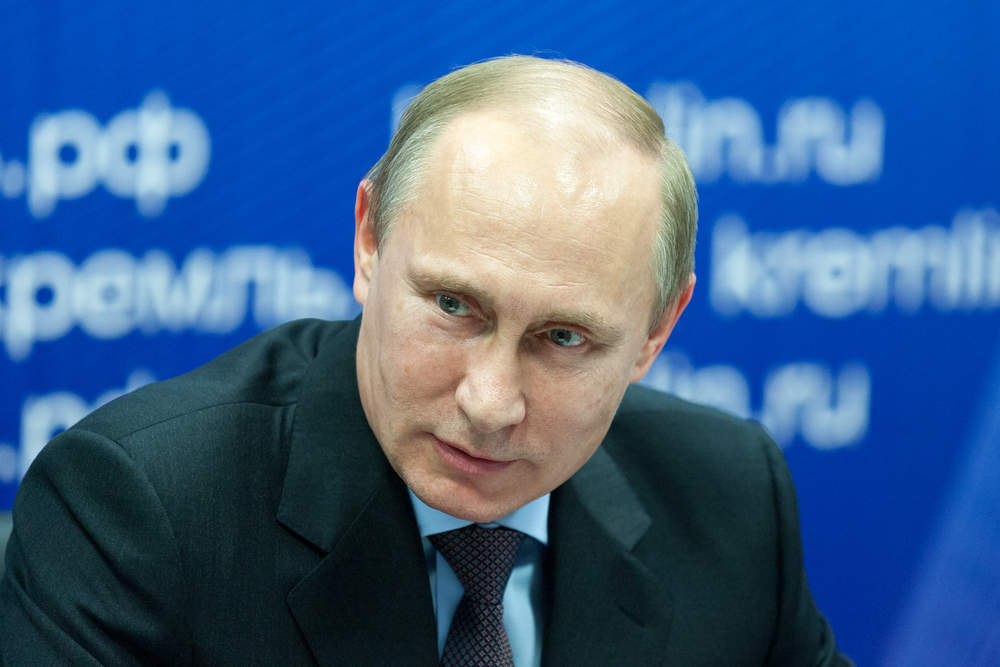
Vladimir Putin has high approval ratings in his home country and reputation as a powerful world leader — even US president Donald Trump thinks so.
On the other hand, many see him as a manipulative figure in global politics.
He is responsible for reversing Russia’s democracy according to the Economist Intelligence Unit’s Democracy Index and the Freedom Of The World index.
Putin’s Russia has also scored poorly in Transparency International’s Corruption Perception index.
Understandably, this has led to much speculation over Putin’s reaction to Brexit and the UK’s evolving relationship with the European Union.
What has Putin said about Brexit?
Speaking at the World Economic Forum before the referendum, David Cameron claimed Brexit would please Putin:
How well do you really know your competitors?
Access the most comprehensive Company Profiles on the market, powered by GlobalData. Save hours of research. Gain competitive edge.

Thank you!
Your download email will arrive shortly
Not ready to buy yet? Download a free sample
We are confident about the unique quality of our Company Profiles. However, we want you to make the most beneficial decision for your business, so we offer a free sample that you can download by submitting the below form
By GlobalDataIt is worth asking the question: who would be happy if we left? Putin might be happy. I suspect [Isis leader] al-Baghdadi would be happy.
However, Putin was quick to deny the former British prime minister’s claims.
Speaking to journalists in St Petersberg, Putin claimed to have no opinion on Brexit and rubbished Cameron’s claims:
I believe that this is nothing more than a flawed attempt to influence the public opinion in his own country. As we can see, even this did not bring the right result for those who did it … after the vote, no one has the right to make statements about some position of Russia. This is nothing more than a demonstration of the low-level of political culture.
Similarly, he claimed that Brexit was “none of [Russia’s] business”.

However, after the referendum, Putin did warn against the “traumatic” effects that Brexit could have on the UK and Europe:
What I would like to stress in this respect is that Brexit is the choice Britain’s people have made and we have not and will not interfere in this process. However, we will follow these developments closely of course, follow the talks between London and Brussels and the potential consequences for Europe and for all of us. It is clear that this referendum’s traumatic effect will make itself felt for a long time yet. We will see how they all put democratic principles into practice.
In April 2017, a report by the Commons public administration and constitutional affairs committee stated MPs were concerned about Russia or China having potentially interfered in the EU referendum.
The voter registration website had gone down on the final day of registration.
The MPs argue that the technical issues bore the hallmarks of a distributed denial of service attack (a series of malware-infected computers used to overwhelm the site’s servers).
The argument goes that by denying people the chance to register to vote, the attack may have disenfranchised people.
The suspected attack would be consistent with cyber-attacks used by Russia and China in the past. Russia has not responded to the allegations.
Would a potential EU break-down suit Putin?
There’s no denying that having the EU dissolve would be convenient for Putin.
His government’s actions in Ukraine and support of Bashar al-Assad in Syria provoked an infamously frosty relationship with EU politicians.
Writing for the Washington Post, political commentator Michael McFaul summarised what Putin could gain from Brexit, writing:
Most importantly, one of the European Union’s most principled critics of Russian aggression in Europe will no longer have a vote in Brussels… The UK exit also removes one of the EU’s most capable members… Removing those resources, personnel and assets from the E.U. will ultimately weaken the organisation, an outcome that serves Putin’s political purposes.
While Putin has remained quiet about Brexit, his muted response may lead many to suspect the Russian leader’s motivations.




